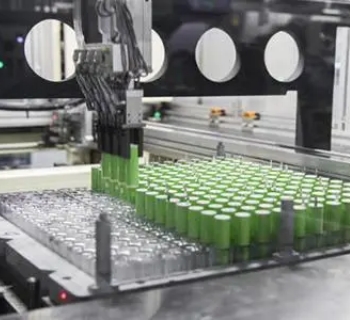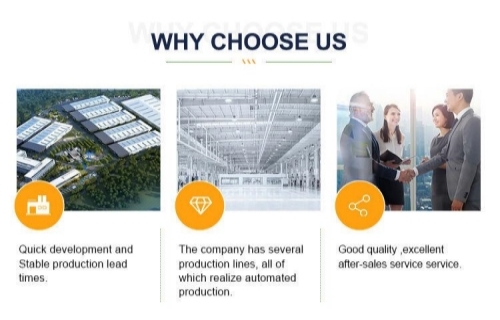Lithium battery anode materials embed or adsorb lithium ions, completing the conversion of electrical energy. Unlike the concept of positive and negative electrodes in electricity, the anode of a lithium battery is equivalent to the negative electrode during discharge and the positive electrode during charging. Common anode materials include graphite, silicon, tin, and their oxides, which vary in performance, cost, and safety and must be selected according to specific circumstances.
1. Material selection: Anode materials are usually materials that can embed or adsorb lithium ions, such as graphite, silicon, tin, and their oxides. These materials can undergo electrochemical reactions during charge-discharge cycles to complete electrical energy conversion.
2. Electrochemical reaction: During the discharge process of the battery, the anode material loses electrons and undergoes an oxidation reaction. At the same time, lithium ions detach from the anode material and enter the electrolyte. The anode undergoes a reduction reaction during the charging process, and lithium ions are re-embedded into the anode material.
3. High potential: In lithium batteries, the potential of the anode is usually high, so when the battery is discharged, the anode acts as the positive electrode. During charging, the anode acts as the negative electrode.
4. Stability: The anode material needs good chemical and structural stability to guarantee the safety and stable performance of the battery during the charging and discharging processes.
5. Capacity and energy density: The capacity and energy density of anode materials significantly impact the performance of batteries. Anode materials with higher capacity and power density can improve the battery's endurance and efficiency.
The main application area of lithium battery anodes is in the battery industry, especially in manufacturing lithium batteries. With the rapid development of electronic devices such as mobile phones, laptops, digital cameras, etc., the battery industry has become the largest consumer area for lithium.

The main application areas of lithium battery anodes are in the battery industry, especially in the manufacturing of lithium batteries
The selection of anode materials significantly impacts the performance of lithium batteries. An ideal anode material should have advantages such as high energy density, stability, low cost, and environmental protection. The widely used anode materials mainly include graphite, silicon, tin, and their oxides. These materials can embed or adsorb lithium ions during the charging and discharging process, completing the storage and release of electrical energy.

Company Profile
NANOTRUN(www.rboschco.com) is a trusted global chemical material supplier & manufacturer with over 12-year-experience in providing super high-quality chemicals and nanomaterials, including Lithium Battery Anode, nitride powder, graphite powder, sulfide powder, 3D printing powder, etc.
The company has a professional technical department and Quality Supervision Department, a well-equipped laboratory, and equipped with advanced testing equipment and after-sales customer service center.
If you are looking for high-quality Lithium Battery Anode, please feel free to contact us or click on the needed products to send an inquiry.
Payment Term
L/C, T/T, Western Union, Paypal, Credit Card etc.

Shipment Term
By sea, by air, by express, as customers request.
Storage Conditions:
1. Avoid high temperature and humidity: Lithium battery anodes should be stored in a dry, cool, and ventilated place, away from sources of fire and high temperatures. High temperature and humidity may cause changes in the anode material's chemical properties, affecting battery performance.
2. Avoid mechanical damage: The anode of lithium batteries should be protected from mechanical damage during storage, such as impact, compression, etc. These damages may cause damage to the anode material, thereby affecting the performance and safety of the battery.
3. Avoid contact with chemicals: The anode of lithium batteries should be kept away from chemicals, especially corrosive ones. These chemicals may react with the anode material, leading to decreased battery performance or damage.
4. Regular charging and discharging: For lithium batteries stored for a long time, it is recommended to perform regular charging and discharging operations to maintain the activity of the anode material. Batteries that are not used for a long time may experience self-discharge, leading to a decrease in the performance of the anode material.
5. Avoid overcharging and discharging: During storage, overcharging and discharging lithium batteries should be avoided. Overcharging may cause structural damage to the anode material, while overcharging may lead to the loss of activity of the anode material.
Q1
What are the main functions of lithium battery anode materials?
Re:The main function of lithium battery anode materials is to store and release lithium ions. Lithium ions migrate from the cathode to the anode during the charging process and are embedded in the anode material. Lithium ions detach from the anode material during the discharge process and migrate back to the cathode. This process achieves the storage and release of electrical energy.
Q2
What are the commonly used anode materials for lithium batteries currently?
Re:The commonly used anode materials for lithium batteries include graphite, silicon, tin, and oxides. Graphite is the earliest and most widely used anode material due to its good cycling performance and lower cost. Silicon and tin have attracted attention due to their high theoretical capacity, but their volume changes during charging and discharging processes are significant, resulting in poor cycling stability.
Q3
How does the anode of a lithium battery work during the charging and discharging process?
Re:During lithium batteries' charging and discharging process, the anode undergoes an oxidation-reduction reaction. Lithium ions are removed from the anode material during charging, migrated to the cathode through the electrolyte, and embedded within it. At the same time, electrons trend from the positive to the negative electrode through an external circuitry, forming a current. The discharge process is the reverse reaction of this process, where lithium ions are released from the cathode and migrate to the anode. At the same time, electrons flow from the cathode to the anode through an external circuitry, providing energy.
Q4
What is the performance of graphite as an anode material for lithium batteries?
Re:Graphite, an anode material for lithium batteries, has good conductivity, high specific capacity, and stable chemical properties. Its layered structure accommodates more lithium ions, achieving higher energy density. However, there is also a certain volume change in graphite during the charging and discharging process, which may lead to structural damage and capacity decay.
Q5
What are the key factors to consider when evaluating the safety of lithium battery anode materials?
Re:When evaluating the safety of lithium battery anode materials, key factors include the material's thermal stability, chemical stability, mechanical strength, and electrochemical performance. Thermal stability is related to the performance of batteries under abnormal conditions such as high temperature or short circuits; Chemical stability affects the compatibility between the battery and electrolyte; mechanical strength affects the safety of batteries when subjected to external impact; The electrochemical performance is directly related to the charging and discharging efficiency and cycle life of the battery.




